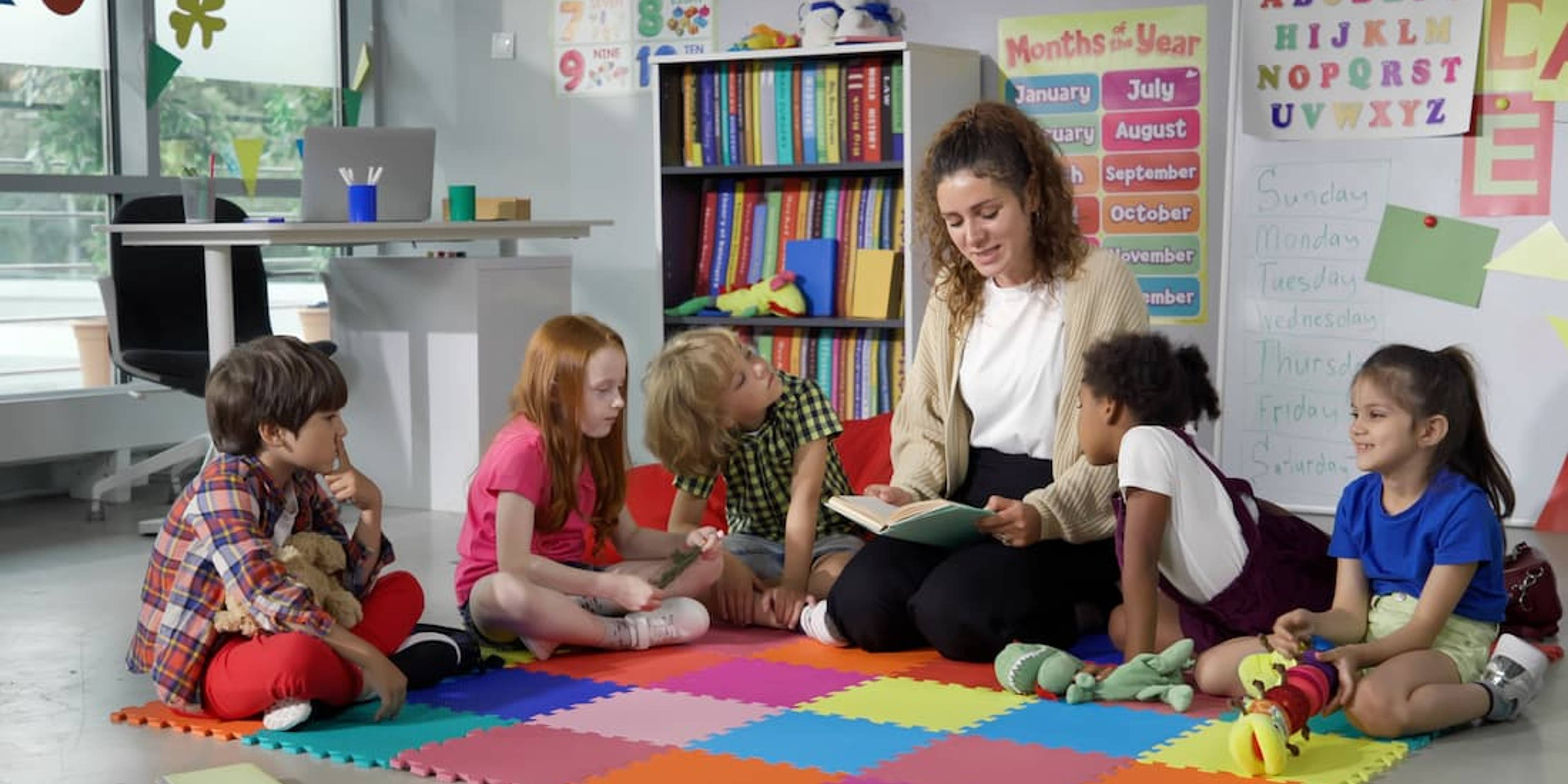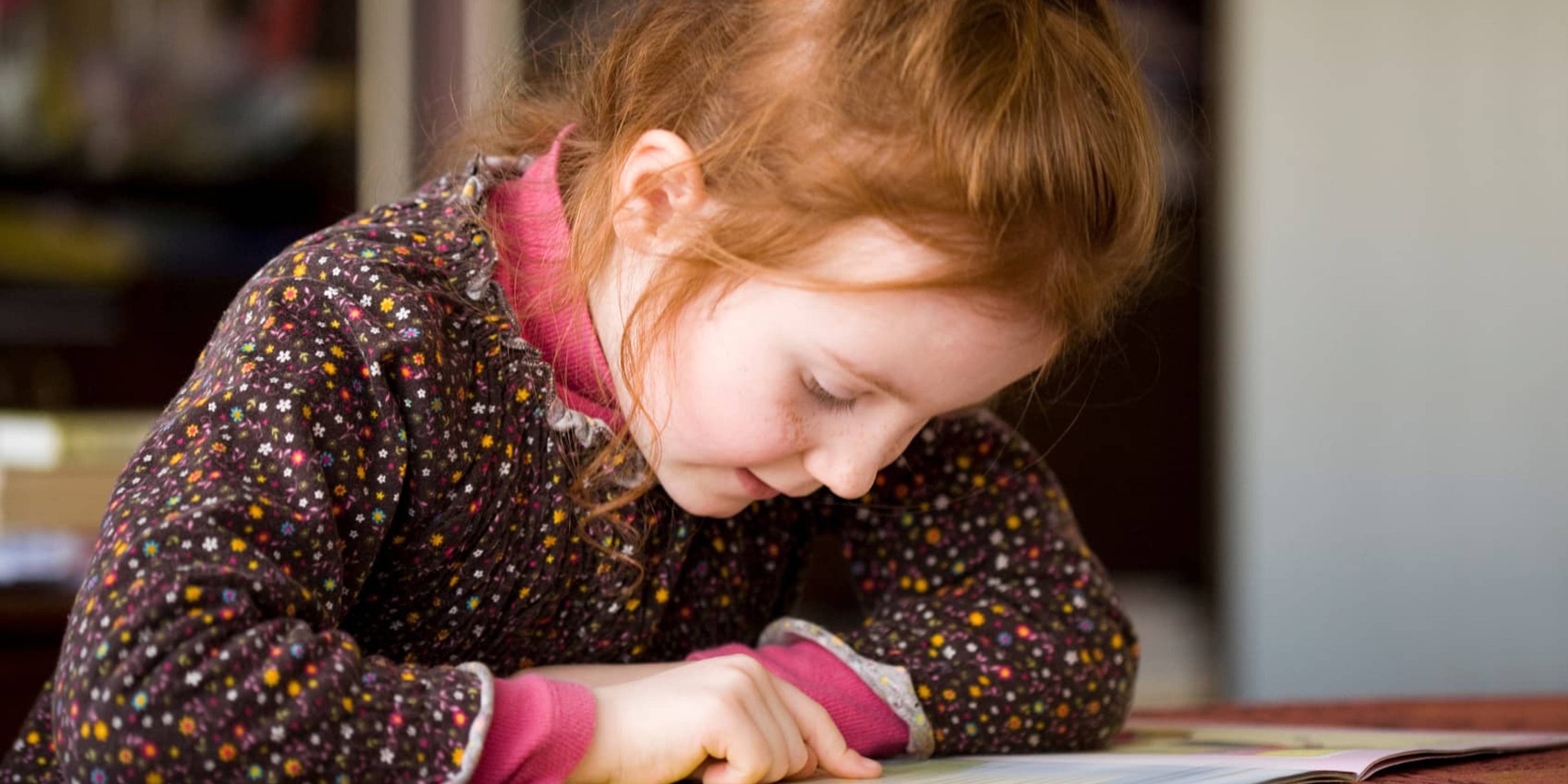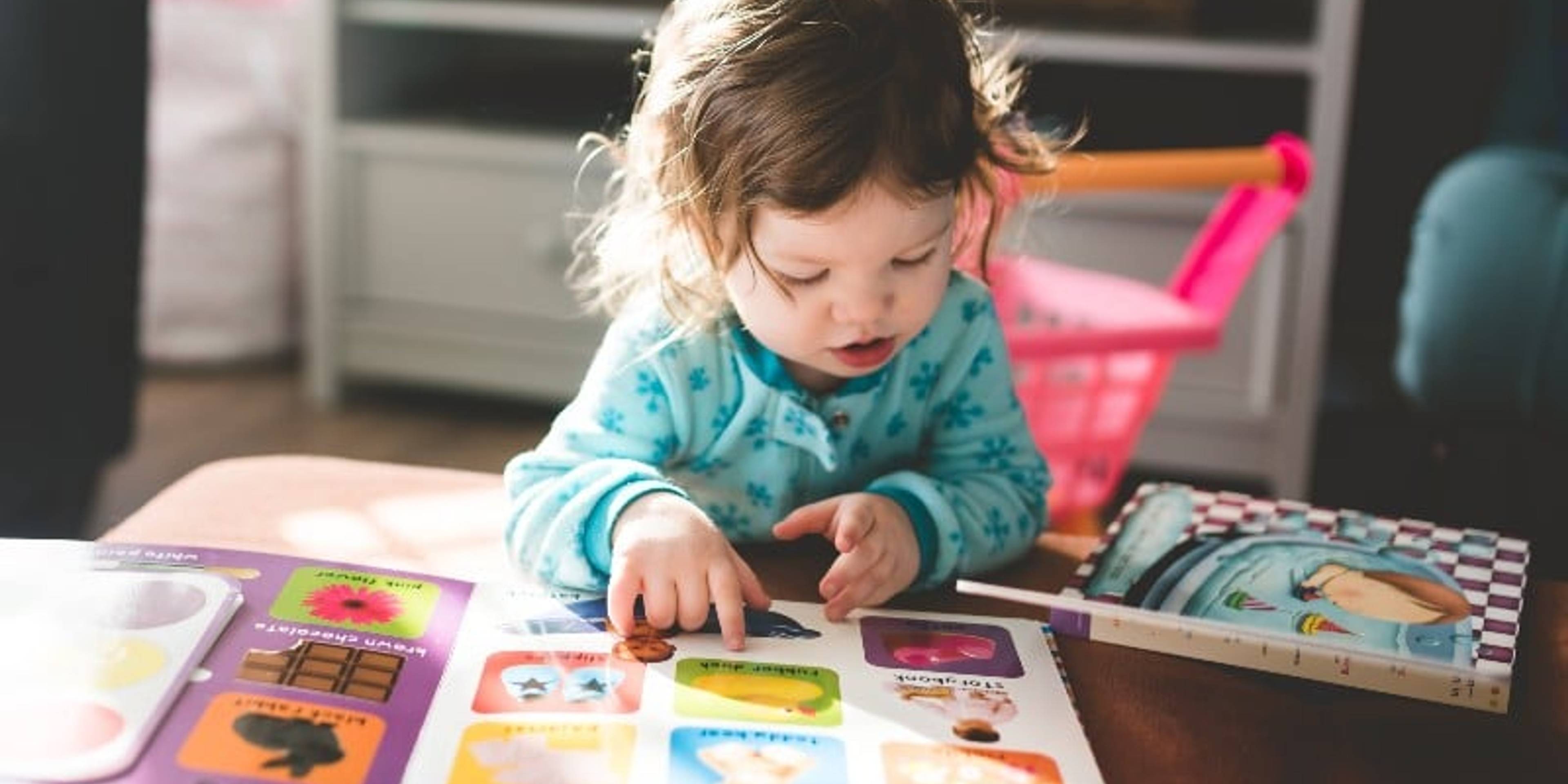June 13, 2024
NELI Preschool: a new oral language enrichment programme for preschools and nurseries
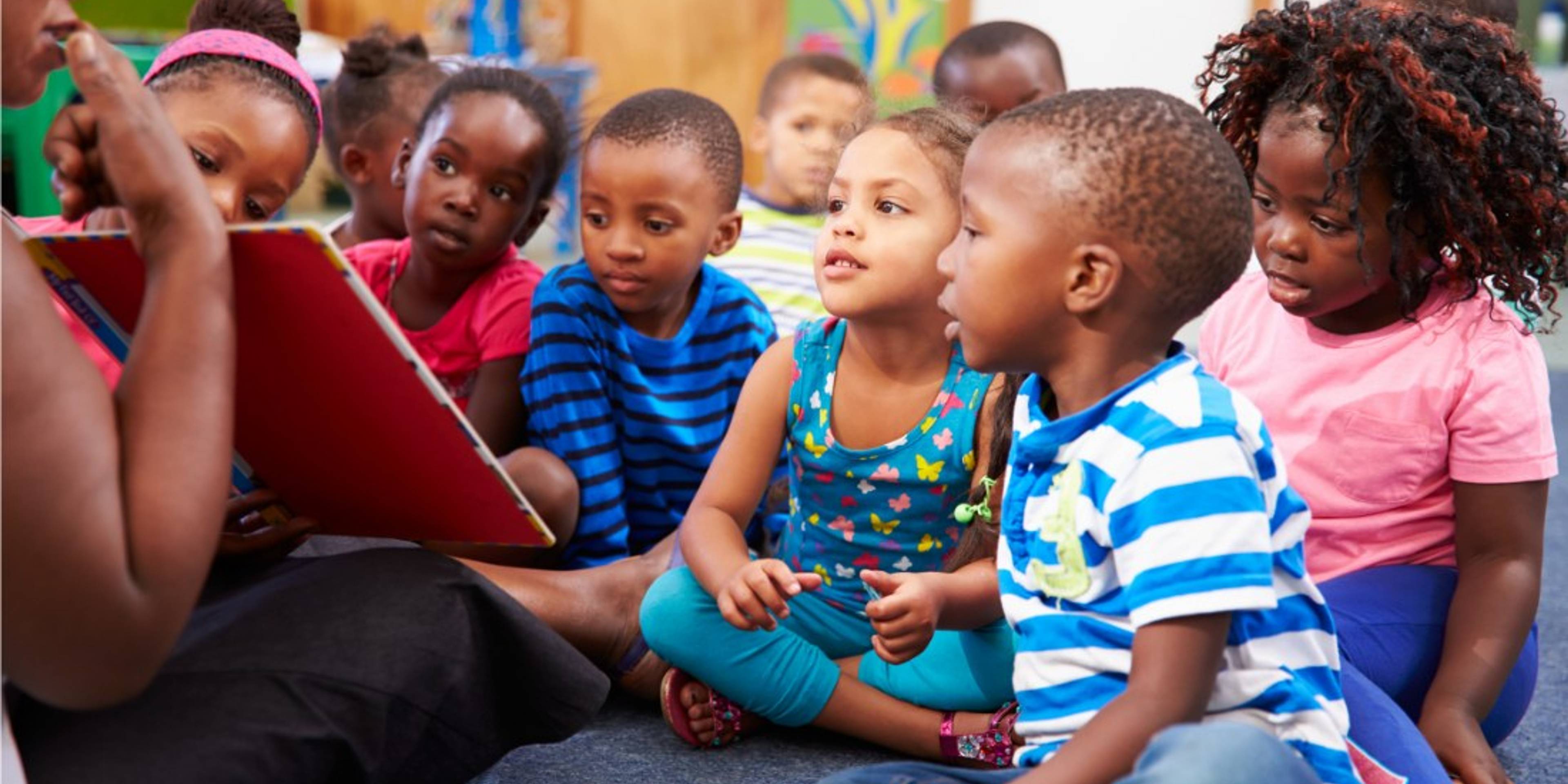
Oral language skills provide the foundation for formal education, yet many children enter school with language weaknesses. Oral language is fundamental to children’s overall development and educational success. It is linked to all higher level cognitive skills and is pivotal for literacy development, and education more generally. It’s also vitally important for children’s social and emotional development.
The term oral language refers to a complex set of skills that should ideally work seamlessly together to enable children to communicate with others by producing and understanding language. It’s an umbrella term, encompassing numerous component skills which include having a good vocabulary and the grammatical ability to combine words effectively to convey meaning, along with an understanding of cause and effect, memory skills and the ability to plan what to say and what not to say.
Language skills develop rapidly between the ages of 3–6 years making preschool an excellent time to intervene to support language development. Because of this, Dr Gill West and her colleagues – as part of a team headed by Professor Charles Hulme – have developed and evaluated the efficacy of a new language enrichment programme, the Nuffield Early Language Intervention—Preschool (NELI Preschool), which is delivered to children the year before they enter formal education. The programme combines language enrichment for all children, with additional targeted support for those with language needs, potentially narrowing the gap in language skills associated with social disadvantage.
Summary
“To our knowledge, this is the first randomised control trial to demonstrate substantial improvements in children’s oral language skills from a whole class language enrichment program.”
NELI Preschool is a 20 week, scripted, language enrichment program for children aged three and four. It is a universal enrichment programme designed to be used in nursery/preschool settings, which scaffolds the improvement of all children’s language skills through a scheme of shared reading and guided play. It also has an additional targeted support element for children identified as having weak language skills. The intervention is an evidence-based programme and has flexibility built in, enabling practitioners to tailor it to their particular circumstances.
The programme features 20 original children’s books and a significant amount of supporting materials relating to special ‘words of the week’ and narrative activities surrounding the stories. Children are encouraged to talk and supported to produce more cohesive utterances, using varied vocabulary. It also aims to support children’s narrative development, both in terms of telling stories and in the recounting of simple experiences and events from their own daily lives. It is designed to help children develop an ability to listen for longer periods of time, which will benefit them as they move into formal schooling.
The intervention also includes an extensive self-paced online training programme for educators which takes approximately 10 – 12 hours to complete and includes a detailed introduction to children’s oral language development, exploring the problems that children commonly experience and strategies that can be used to support language development. It focuses on the techniques used for shared book reading and teaching, as well as good practice in encouraging language production and active listening, and includes filmed sessions of programme delivery, enabling trainees to watch ‘best practice’ for each type of programme session, alongside additional expert commentary. A peer delivery support hub is also offered, which allows settings to come together, share experiences and showcase how the intervention is being implemented in their classrooms.
All children are assessed by teachers before the programme starts using the LanguageScreen app. This is also used to monitor improvements in language skills during the programme, and allows the staff delivering the scheme to make decisions based on the results. This assessment tool helps to identify children who need targeted intervention from the NELI Preschool programme, and children with substantial and long-lasting challenges, who may benefit from specialised, ongoing support from speech and language therapists or specialist teachers.
The programme has been trialled in 65 nurseries with 1,586 children through a randomised control trial. Half of the nurseries were allocated to the control group. Staff in the other half were trained to deliver NELI Preschool and subsequently used the programme. All children in the trial were screened by staff in their own settings.
Results showed that, on average, children receiving the NELI Preschool intervention made about three additional months of progress in language development compared to the control group (where children were still receiving high quality education). Many of the nurseries described boosts in confidence around oral language, for both children and staff.
Implications
Implications for schools
Interested schools and nursery settings have until 26th July 2024 to sign up to an Education Endowment Foundation trial to test the effectiveness of NELI Preschool.
The project will be evaluated by the Education Endowment Foundation through a randomised controlled trial. Settings that sign up are randomly assigned to one of two groups: the intervention group, who implement NELI Preschool; or the control group, where practice continues as usual. As they do not receive the intervention, the control group receives a larger payment for taking part in testing and has the opportunity to use this payment to implement NELI Preschool the following year.
The evaluation will be an effectiveness trial, meaning it will assess the impact of NELI Preschool in real-world conditions. It will evaluate the impact of NELI Preschool on children’s language skills, including receptive and expressive vocabulary, listening comprehension, use of words to cover information, and grammar.
Expressing interest in the programme does not commit settings to taking part. Please note that the trial is only available in certain geographical areas.
Implications for parents
Consider children’s language nutrition and build language-rich environments. Talk as much as possible with children. Listen carefully to what they say. Repeat back their responses and expand on them. Engage in activities that use language, such as rhyming and singing to help develop phonemic awareness.
Build on children’s experiences. Explore the world around them and use language to expand their knowledge and understanding. Chat as you go on daily walks. Be sensitive to your child’s interests and talk as you play alongside them.
Use dialogic reading techniques. Reading with children should ideally be an active process. When you are reading to them, involve them in the story. Ask questions and invite their opinions and perspectives. Attune to what they are interested in and nudge them to consider certain aspects of the plot or characters’ feelings further. Get as much information as possible from books and read a variety of different kinds and genres.
Picture books without words have their place, but ensure that you also use books with words. To use picture only books effectively, adults should be confident with scaffolding children’s language. The language used in books with words is commonly much richer than our everyday spoken language. Therefore, books with words give children the opportunity to get to grips with more interesting and varied vocabulary, and more complex grammar.
Audiobooks have a place, but should not replace written books. Many children enjoy audiobooks at bedtime or in the car. The books used on the NELI Preschool programme actually have a recording which children can listen to after reading the story. However, audiobooks tend to be a more passive experience for children, with less opportunity for interaction, so whilst they are a lovely addition, don’t rely on them instead of written books and talking.
Join your local library! Surround them with language.
If you are worried about your child, go and talk to their school or nursery.

Dr Gill West
Lecturer in Language Sciences: Development and Disorders at University College London
Dr Gill West is Lecturer in Language Sciences: Development and Disorders at University College London. Before taking up this role in 2023, she was a Research Fellow and Lecturer in Child Development and Education at the Department of Education at the University of Oxford. Her research focuses on language assessment and intervention in children, including large-scale randomised control trials of school-based language interventions. Recent projects include evaluations of the Nuffield Early Language intervention (NELI), the development of an online teacher training and support model for the programme to enable delivery at scale and the subsequent rollout of NELI to over 10,000 schools between 2020 to 2022, funded by the DfE as part of its Covid 19-recovery effort. She was also part of the development team behind LanguageScreen (www.languagescreen.com), an app used in schools to assess the language skills of children aged 3-8 years. She is now involved in the development and evaluation of a new early language enrichment programme for children in nursery. A successful efficacy trial funded by the Nuffield Foundation has been completed and recruitment of nurseries for the next stage of the research – a large-scale effectiveness trial funded by EEF – is underway.
In addition to her academic role, Gill is also one of the Directors of a University of Oxford spin out company, OxEd and Assessment Ltd, created to translate research into children’s language and reading difficulties into practical applications. Gill completed her PhD at UCL, combining an interest in both memory and language to investigate the relationship between memory processes and language in children.
Dr Gill West
Lecturer in Language Sciences: Development and Disorders at University College London
Related Resources

Reading to Your Child
Scroll our research gallery

Jan 19, 2026
The power of reading: books, vocabulary and learning
Did you know that 2026 is the UK’s National Year of Reading? This long-overdue initiative reflects growing concern and renewed commitment around children’s reading and literacy. As Dr Maria Korochkina, our latest Researcher of the Month, puts it: “The ability to read opens up worlds. Reading enables children to progress into post-primary education and provides the basis for lifelong learning and prosperity into adulthood”. Frequent readers tend to have a stronger understanding of both their own and others’ emotions. They are often better able to communicate these emotions, a skill linked to higher emotional intelligence and improved mental wellbeing. Reading also encourages cause-and-effect reasoning and helps children imagine scenarios beyond the immediate moment - developing the skill of -future-thinking'. A rich vocabulary underpins learning across the school curriculum, strengthens thinking and communication skills, and predicts both academic attainment and later life outcomes. Research consistently shows that the most effective way to build vocabulary is through reading. However, learning to read well is not quick or effortless. The journey to skilled reading typically spans around ten years, requiring high-quality classroom instruction alongside sustained practice through independent reading. For many children, this process is painstaking, demanding consistent teaching, encouragement and opportunity over time. Against this backdrop, recent evidence presents a worrying picture. Fewer children are reading for pleasure than ever before. In 2024, only one in three UK children and young people aged eight to 18 reported enjoying reading in their free time. Even more strikingly, just one in five said they read daily for pleasure, the lowest level recorded since the National Literacy Trust began collecting this data in 2005. This matters because reading ability and reading enjoyment are deeply intertwined. Children who find reading effortful are far less likely to choose to read independently. Dr Korochkina’s research highlights how early reading experiences shape later habits: difficulties with phonic and morphological knowledge in the early stages of reading acquisition can have a snowball effect, reducing confidence, fluency and motivation over time. Her work also offers a powerful note of optimism. Books that children actively choose to read, including contemporary, popular texts, provide rich opportunities to develop vocabulary, particularly when children read widely. Ensuring access to a diverse range of engaging reading material, alongside strong early instruction, can play a vital role in building both reading skill and reading motivation. Fostering confident, motivated readers requires long-term commitment. It is not enough for children simply to have books available to them. They need skilled teaching, time, practice and a culture that values reading as both a skill and a pleasure.

Dec 15, 2025
Crossing the line into cybercrime
As the most digitally connected generation so far, young people today face new challenges. Our latest Researchers of the Month, Professor Davidson and Dr Farr, have found that in the last decade, an increasing number of young people (particularly young men) have committed serious cybercrime offences, particularly hacking and money laundering. Their new book, written following a large research project funded by the European Union’s Horizon 2020 research and innovation programme, seeks to understand the drivers behind this trend. It explores a range of potential factors that may lead young people to engage in risky online behaviours, and to identify effective pathways for prevention.

Nov 16, 2025
Supporting Children’s Use of AI
Children and young people are now growing up surrounded by AI, and the landscape is shifting fast. In the UK, recent data from Ofcom and Internet Matters suggests that around half of children aged 8–17 regularly use generative AI tools such as ChatGPT, Bard or Snapchat’s MyAI. Many describe these interactions as feeling like conversations with a friend. A recent report from Common Sense Media found that 33% of teens had actually chosen to talk to an AI companion instead of a real person about something important or serious. Whether children are asking voice assistants to answer their questions, relying on chatbots for bedtime stories, using learning apps for revision or engaging with large generative AI models, it’s essential to remember that most of these systems were built with adults in mind, not children. They often assume levels of attention, memory and emotional maturity that younger users simply don’t have. Even older children and teenagers, who increasingly use AI as a supportive confidante (often without adult supervision or knowledge), are still learning to navigate boundaries around trust, identity and emotion. Our latest Researcher of the Month, Dr Nomisha Kurian, wants this to change. She has developed a new framework called Developmentally Aligned Design (DAD), which outlines how AI can be built with children’s needs, vulnerabilities and strengths at its core. She also chatted to us at Tooled Up, sharing practical tips on recognising when children may be relying too heavily on AI for emotional connection, how to talk to them about healthy boundaries, and how parents and educators can help children and young people use AI tools safely, creatively and critically.

Oct 16, 2025
Algorithmised Girlhood: Teenage Girls and TikTok
As part of the early stages of her PhD study, our latest researcher of the month, Chiara Fehr, ran several focus groups about experiences of TikTok with eight 17 year old girls. Using creative methods, such as ‘TikTok show and tells’ a collaging session and a utopic mapping exercise, Chiara is exploring whether dominant narratives around growing up in a digitised world reflect the real life experiences of teens, and has summarised her findings so far in a recent article.
![“[They use devices] alllllllll day long”. What do children think about our tech use?](https://cdn.sanity.io/images/jxfh43in/content-prod-d2c/79f219275088655f59590f61ff29b6bc8b0d77f8-1100x733.jpg?w=3840&h=1920&q=70&fit=crop&crop=center&auto=format)
Sep 09, 2025
“[They use devices] alllllllll day long”. What do children think about our tech use?
We're all used to reading about children and young people's increasing use of digital tech. But what about adults' use? And what impact might our tech use have on family life? Parents today are spending an unprecedented amount of time on their devices. One study found that parents spend an average of nine hours per day engaged with screen devices. Over four hours of this is on smartphones, averaging 67 phone checks per day. Despite children's central role in family life, their voices and perspectives on the device use of the adults around them have been largely neglected in research. Along with colleagues, our latest Researcher of the Month, Professor Cara Swit, has published a fascinating study exploring the experiences and perceptions of children aged six to nine about their parents’ device use at home and its impact on them.

Aug 13, 2025
Students’ views on smartphone bans
In recent years, banning or restricting children’s access to smartphones and social media has grasped the attention of policy makers, schools and parents. A number of countries, including France, Turkey, Norway, Sweden, and regions of the US and Canada have introduced laws, policies or guidance for schools to ‘ban’ or heavily restrict the use of phones. Within Ireland, in 2024, the Minister for Education announced her intention to introduce smartphone bans in post-primary schools, whilst at the same time acknowledging that individual schools are best placed to decide on the scope and scale of restrictions for their students. Whilst these bans aim to protect children from harm, and teachers often anecdotally report seeing benefits, evaluations of existing research highlight a lack of evidence on their efficacy. At the moment, we simply don't know enough about the impact of bans. Evidence is hampered by the fact that technological developments and technology use is moving at a faster pace than research. Some studies suggest that bans are beneficial to academic outcomes and mental wellbeing. Others suggest no effects. However, many studies have methodological weaknesses, use small samples or retrospective data, and can't ascribe causal mechanisms. Our latest Researcher of the Month, Dr Megan Reynolds, has recently published a paper which explores young people's perspectives and experiences of smartphone bans in their schools. Unlike most previous research, it centres student voices in this high profile issue.

Jul 14, 2025
Do teens with mental health conditions use social media differently than their peers?
As Luisa Fassi, our new Researcher of the Month, comments, "The link between social media use and youth mental health is hotly debated, but hardly any studies look at young people already struggling with clinical-level mental health symptoms". In fact, Luisa's large systematic review and meta-analysis found that only 11% of papers published on the topic since 2007 focused on young people with clinical conditions. Her review also showed that the data used to evidence mental health conditions in these existing studies is not always strong or especially robust. Many report links between social media and mental health on the basis of short self-report questionnaires, where young people are asked about symptoms. Whilst this wasn't found as part of Luisa's review, it is also the case that very few papers in the field differentiate between different mental health conditions, or examine different symptoms or conditions (such as anxiety, ADHD or eating disorders) in isolation. To address this research gap, Luisa and colleagues have recently published a fascinating and nuanced paper. It analyses both quantitative and qualitative dimensions of social media use from a nationally representative survey of 3,340 teens in the UK aged between 11 and 19 years old, which was conducted by NHS Digital in 2017. Rather than gathering mental health data from self-report questionnaires, the young people in the survey underwent a full clinical screening, which included interviews with the young people, their parents and teachers. Information about social media use came from questionnaires completed by participants. They were not asked about specific platforms. Luisa used this data to gather novel insights into how social media and mental health are related in teens who both meet and do not meet diagnostic criteria for a wide range of mental health conditions. The study does not establish any causal links, but it does reveals a range of differences between young people with and without mental health conditions when it comes to social media.

Jun 17, 2025
Navigating the feed: younger adolescents' reflections on algorithmically curated social media
Our latest researcher of the month, Roxana Pomplun, has investigated the interactions, experiences and perceptions of younger adolescents, aged 11, 12, and 13, with algorithmically curated platforms such as TikTok, YouTube Shorts, Spotlight on Snapchat and Reels on Instagram. These kinds of platforms use algorithms to personalise and tailor feeds, harnessing user data to suggest content that the individual is most likely to be interested in and engage with. As such, young people have little control over what they are seeing in their feeds. Tech companies are not yet required to be transparent about the data that they are collecting, but it tends to include demographic information such as age, gender or location, along with use patterns. Whilst these sites dominate the digital lives of tweens and teens, until now they have received little dedicated research attention, particularly in relation to younger users, with most existing studies focusing on older teens. Whilst we know that most social media platforms have age limits of 13, we also know that many younger children are active users, particularly of algorithmically curated platforms like TikTok and YouTube Shorts. Given that early adolescence is a life phase marked by critical neurological development, identity development and heightened susceptibility to mental health issues, deepening our understanding of how younger adolescents engage with social media is vital. Roxana's qualitative research, where a group of young people eloquently explore their own experiences and perceptions, broadens our knowledge of social media use within an age group that appears increasingly aware of the digital influences shaping their online experiences, yet which is still in need of support to fully navigate these ecosystems.

May 15, 2025
Looking beyond smartphone bans
Over the last year or so, there has been a surge in public concern around smartphones and social media. Banning or restricting children’s access to smartphones and social media has grasped the attention of policy makers, schools and parents. A number of countries, including France, Turkey, Norway, Sweden, and regions of the US and Canada have introduced laws, policies or guidance for schools to ‘ban’ or heavily restrict the use of phones. In the UK, there are proposals to raise the age of ‘internet adulthood’ from 13 to 16, and to ban smartphones in schools. The third reading of a private members’ bill on this topic will be heard in parliament in July. Whilst these bans aim to protect children from harm, recent studies highlight a lack of evidence on their efficacy. Along with a team of international experts, our latest Researcher of the Month, Professor Victoria Goodyear, argues that, in isolation, banning smartphone and social media access fails to equip children for healthy use of technology. She suggests that there is a need to shift debates, policies and practices away from a sole focus on restricting smartphone and social media access, toward an emphasis on nurturing children’s digital skills for healthy technology use, and a rights-respecting approach which is underpinned by age-appropriate design and education.
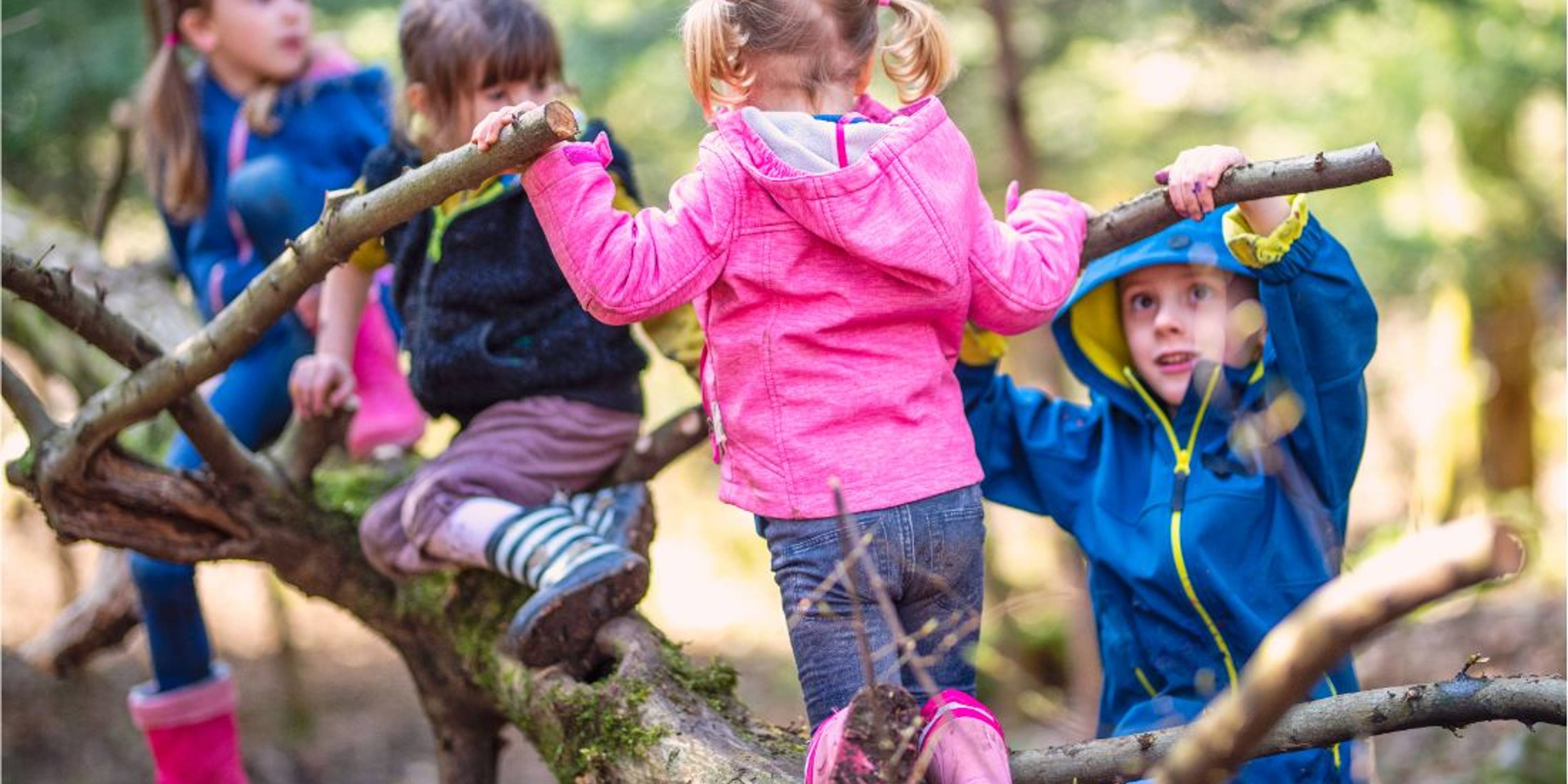
Apr 22, 2025
Encouraging adventurous play in the preschool years
Tune into our podcast interview with April's researchers of the month here. As well as providing numerous opportunities for exploration, joy, and expression, outdoor and adventurous play - the type of play that allows children to take age-appropriate risks - is associated with a range of positive health behaviours and outcomes. Yes, we're talking about the kind of play that might leave us adults with our hearts in our mouths at times, as children start to disappear up a tree, or engage in a rough and tumble game of chase. But its benefits are wide-ranging and known impacts include increased levels of habitual physical activity alongside better mental health and positive mood. In 2019, Dr Hesketh was involved in the creation of physical activity guidelines in the UK, which explicitly note the importance of outdoor play for children in the preschool age group. We know quite a lot about the play habits of school-aged children, but until now, have had significantly less data on their younger counterparts. Our Researchers of the Month, Dr Kathryn Hesketh and Professor Helen Dodd set out to discover how much time preschool-aged children spend playing in a range of indoor and outdoor spaces, and how adventurously they are playing within them. In the first national survey of play in children of this age, they asked over 1000 parents of two to four year olds about their children’s play habits, finding that, on average, children aged two to four spend around four hours per day (outside of educational settings) playing. Just under 50% of this was spent playing outdoors. Their findings shed interesting light on some inequalities in play, even in the youngest age group, which may exacerbate existing inequalities in health.
